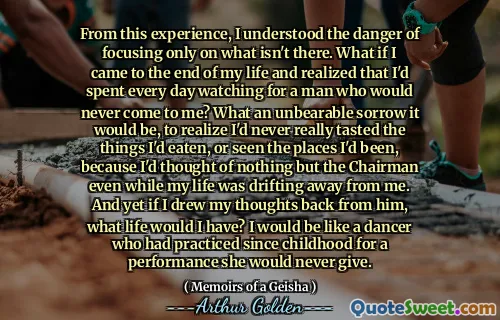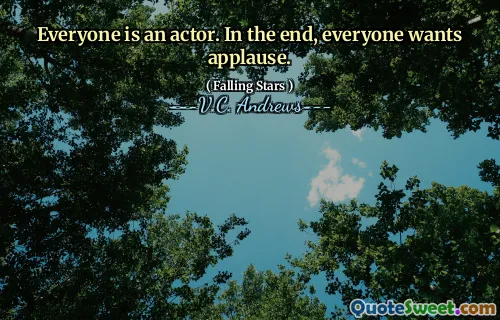
It was as if my soul had left my body, floated up to the ceiling, and was watching me destroy my own career with one deliberately assaultive punch. {Dark City Lights}
This quote captures a profound moment of self-alienation and internal conflict. The imagery of one's soul detaching from the body and observing their own actions conveys a deep sense of dissociation—like watching oneself from an external perspective and feeling powerless or shocked by one's own choices. There is an implication of regret and inevitability, highlighted by the phrase 'destroy my own career with one deliberately assaultive punch.' It suggests an act that is both purposeful and self-destructive simultaneously, bringing in the complexity of human emotions where anger, frustration, or desperation pushes someone to make a decision that harms their own future. The context of "Dark City Lights" evokes a dark, perhaps urban setting that could symbolize isolation or harsh realities. What stands out is the tension between consciousness and impulsivity: the soul sees what the body does, yet appears detached, perhaps wishing to intervene but ultimately powerless. This can resonate with anyone who has momentarily felt out of control of their own actions or decisions. The quote encourages introspection on how short-lived impulses can overturn long-term goals and how our inner self sometimes mourns the consequences of our outward acts. It stresses the importance of awareness in moments of conflict and the fragile relationship between identity, actions, and consequences. Ultimately, it strikes a melancholic chord about human vulnerability and self-sabotage, and the haunting experience of witnessing one's downfall from an almost spiritual vantage point.
---Peter Hochstein---









